The US adjusts its strategy and strengthens its presence.
Since the beginning of 2018, the US has identified Russia and China as the focus of its new national defense strategy. In that context, both Russia and China have increased their presence and expanded their influence in the African region. In response to the above situation, in an interview with Reuters, US Department of Defense spokesman Can-dit Tre-se said that in the coming time, the US military will reduce its presence in Africa, gradually withdrawing some forces from the anti-terrorism campaign in this region (1) . Instead of maintaining direct combat operations, the US will shift to advisory activities, technical support, establishing communication channels and information sharing.
President Donald Trump (center) received five African leaders (including leaders of Garbon, Guinea-Bissau, Liberia, Mauritania, Senegal) at the White House, July 9, 2025_Photo: AP
In December 2018, the US announced its “Prosperous Africa” policy, pledging to increase economic support and development for African countries, while promoting economic cooperation between the US and the region. However, this policy was not implemented strongly when the US shifted its resource priorities to the “America First” strategy under US President Donald Trump. However, the world situation has changed significantly after the Russia-Ukraine conflict broke out, making Africa continue to be the focus of competition for influence between major countries.
Russia’s active promotion of cooperation and increased influence in Africa to consolidate its position in the international arena seems to have influenced the way African countries express their views on Russia’s foreign policy and direction. This not only reflects the increasingly important role of African countries in global affairs, but also shows the considerable influence of major powers in the African region.
With its growing influence, Africa is becoming a region rich in potential, with the fastest population growth rate in the world , possessing rich natural resources, acting as a large trading bloc and having significant influence in the United Nations system. In light of this reality, the need to adjust the US foreign policy towards Africa is urgent, an inevitable step to reshape the US global policy in the context of competition for influence among the great powers.
Therefore, in December 2022, the US held the US-Africa Summit in Washington (USA), marking the first time the two sides resumed high-level dialogue after 8 years, since the period of US President B. Obama. This is considered a step demonstrating the US's goodwill in expanding and deepening cooperative relations with the entire continent. According to a press release from the US State Department on December 13, 2022, the conference not only demonstrates the US's long-term commitment to Africa, but also a concrete effort to build a comprehensive strategic partnership, based on common interests and priorities. The organization of the conference shows that the US President Joe Biden's administration is adjusting its foreign policy strategy, aiming to put Africa in a position commensurate with the region's increasingly important role in the process of reshaping the global power order. In the context of increasing competition for influence among major powers, this activity can be seen as part of the US strategy to strengthen its position, affirm its presence and re-establish its foreign relations network in this region of special geopolitical significance.
Following the commitment made at the US-Africa Summit, in 2023, the US made many high-level visits to African countries. Notably, there were visits by US Vice President Camilla Harris, US Secretary of State Antoni Blinken, US Secretary of Defense L. Oxtine, US Secretary of the Treasury Janet Yellen and many other senior officials. This activity shows the determination of the US President Joe Biden's administration to strengthen cooperation and expand strategic partnerships with the African region. On that basis, the US committed to a $55 billion aid package for Africa in the 2023-2025 period, focusing on key areas such as economic development, health care, security and promoting sustainable development (2) . In addition, the US announced that it will support the African Union (AU) to become a permanent member of the G-20 (3) ; at the same time, encourage Africa's growing role in regional and international multilateral cooperation mechanisms, such as the United Nations and the International Monetary Fund (IMF). In addition to financial commitments and institutional support, a key content at the 2022 US-Africa Summit is promoting access to the US market for African countries. In particular, the African Growth and Opportunity Act (AGOA) (4) continues to be considered an important tool to promote bilateral trade cooperation. This is part of the US policy to reaffirm relations with Africa - a region that has not really received much attention in US foreign policy in recent years.
In the coming time, according to many experts, the US will continue to promote its presence and expand its influence in Africa through more flexible, diverse and cohesive forms of cooperation. Instead of focusing only on official diplomatic mechanisms, the US focuses on promoting the role of soft connection channels, such as people-to-people exchanges, educational cooperation, infrastructure development, technology transfer and institutional capacity support. In particular, strengthening the connection between the government, businesses, social organizations and the African-American community, as well as globally, is considered one of the important pillars in the US's new approach strategy to Africa.
China expands comprehensive and long-term cooperation
Since the beginning of the 21st century, China has proactively promoted relations with African countries through the establishment of the Forum on China-Africa Cooperation (FOCAC) in October 2000. This is a comprehensive dialogue and cooperation mechanism between the two sides, contributing to enhancing mutual understanding and promoting mutually beneficial development. China-Africa relations have developed rapidly in recent years, recognizing China's increasing role in this region in the fields of politics, economics and development cooperation (5) . Currently, about 1 million Chinese citizens are living and working in Africa, while about 200,000 Africans are studying and working in China. People-to-people exchanges between the two sides have been expanded, contributing to consolidating the social foundation for comprehensive cooperation, especially in the fields of economics, investment and human resource training (6) .
In economic relations, China is considered one of the countries that established cooperative relations with Africa quite early, with initial investment activities appearing about three decades ago, although still on a limited scale. Entering a new stage of development, Africa increasingly holds a strategic position in the orientation of expanding the space of international cooperation and affirming China's influence. In the context of this country promoting development initiatives and shaping multilateral cooperation mechanisms, Africa is identified as a priority partner (7) . China's increased presence and enhanced cooperation with Africa reflects the need to expand its space of influence and consolidate its role in the emerging international order. In particular, security cooperation is considered by many experts to be one of the important pillars, contributing to ensuring regional stability, while creating favorable conditions for China to increase its influence globally.
On the African side, countries in the region have increasingly become significant partners in promoting China’s foreign policy priorities in multilateral cooperation mechanisms, thereby actively supporting the process of shaping China’s stance and implementing its global initiatives. In many bilateral cooperation frameworks, the focus is often on respecting the principles of sovereignty, territorial integrity and coordinating positions on global governance issues. This reflects the increasingly consolidated level of political engagement between the two sides.
Unlike the economic field, defense and security cooperation between China and Africa was not really prominent in the early stages. However, since 2014, China has gradually promoted cooperation in this field in a substantive and in-depth manner. During the period 2014 - 2018, China became an important defense partner of many African countries through technical assistance, equipment and training programs. Notably, in 2017, China established a logistics support base in the Republic of Djibouti - the first such base outside the country, to serve peacekeeping support activities, responding to non-traditional security challenges, such as piracy and terrorism in the African and West Asian regions. This is considered by many experts as a step demonstrating China's commitment to regional security and its expanding international role.
In order to promote security cooperation within the framework of the comprehensive strategic partnership with Africa, in 2019, China initiated the first China-Africa Peace and Security Forum under the Global Security Initiative (GSI). This forum is considered a concretization of the commitments made at the 2018 China-Africa Cooperation Forum, and reflects the need for enhanced security coordination among African countries.
Notably, after Russia launched a “special military operation” in Ukraine, China emphasized the role of defense and security cooperation in its relations with Africa, considering it one of the important areas to contribute to expanding influence and promoting the adjustment of the international order in a multilateral direction, reconciling the interests of many parties. In this process, China not only continues to affirm its role as a leading economic partner, but also gradually participates more deeply in activities in the region. A clear manifestation of this trend is China's strengthening of cooperation programs in training defense and police forces, technical assistance, participation in peacekeeping and promoting security coordination with many African countries.
Chinese General Secretary and President Xi Jinping delivers a speech at the 2024 Forum on China-Africa Cooperation (FOCAC) Summit in Beijing (China)_Photo: THX/TTXVN
To continue expanding its influence in Africa, China has proactively carried out many dialogue and cooperation activities in the field of defense and security. On July 25, 2022, the second China-Africa Peace and Security Forum was held online, demonstrating efforts to concretize the initiative to build a "China-Africa Community of Shared Destiny in the New Era". The forum's core objective is to strengthen solidarity, promote strategic cooperation and gradually consolidate the common security foundation between the two sides, in line with the development requirements of the current regional and international context. The third China-Africa Peace and Security Forum was held in September 2023, with the participation of representatives from many countries in the region. At the event, African countries expressed their desire to strengthen cooperation for peace, security and sustainable development, together towards the goal of building a China-Africa Community of Shared Destiny.
In particular, from September 4 to 6, 2024, the Forum on China-Africa Cooperation (FOCAC) Summit continued to be held in Beijing (China), with the participation of more than 50 heads of state and senior leaders of African countries. The event reflects China's growing appeal on the continent, affirming China's role in the South-South cooperation structure. Through FOCAC 2024 and previous dialogue frameworks, the two sides have reached political consensus on promoting the concept of common security, broadening their approach to international security issues, and deepening the foundation of substantive cooperation in this field.
The above developments show that China-Africa relations are changing in an increasingly substantive, in-depth and multi-layered direction. According to many experts, China's current approach represents a harmonious combination of economic development interests with the orientation of enhancing its role and position in the global governance structure. While economic cooperation continues to play a fundamental role, China proactively expands cooperation in the fields of politics, defense - security and institutional support, in line with Africa's development needs. Currently, China has maintained its position as Africa's largest trading partner for more than a decade. In 2023, bilateral trade turnover reached 282.1 billion USD (8) . At the same time, China continues to strengthen its presence through a series of strategic investment projects, in which most African countries actively participate in the framework of the “Belt and Road Initiative” (BRI), creating a long-term connection platform in key areas such as infrastructure, energy and logistics.
Although the priority given to Africa in China’s global strategy may adjust according to the fluctuations of the international situation, the region still plays an important role in China’s long-term expansion of influence. In the context of increasing geopolitical competition, especially among major powers, Africa is becoming a space of special significance in the global power structure.
In the coming time, China-Africa relations are forecasted by many experts to develop according to several main trends: First, China will continue to adjust its partnership structure and priority areas to improve the effectiveness of cooperation and sustainability in its relations with Africa. This orientation is reflected in expanding its presence in less accessible areas, while diversifying investment sectors and fields, in accordance with the development needs and advantages of each African country. Second, local development initiatives will still be maintained, but with a more cautious and selective approach. Faced with the need to restructure domestic resources, China will focus on the feasibility, financial efficiency and social and environmental impact of each project. In-depth cooperation models and flexible payment mechanisms are expected to help promote sustainable development goals. Third, the two sides will promote the construction of new cooperation models based on the foundation of economic transformation and industrial development. According to the “China-Africa Cooperation Vision 2035”, priority areas include modern agriculture, innovation, domestic brand development, sustainable exploitation of marine resources, digital transformation and green growth. Among them, the transition to a low-carbon economy is identified as an important direction for cooperation in the coming period.
Russia strengthens presence and expands sphere of influence
Although the relationship between Russia and Africa had a period of stagnation after the profound geopolitical changes since the collapse of the Soviet Union in 1991, in the context of Russia gradually expanding its influence in the international arena, Russia-Africa relations are showing signs of recovery. This development reflects the initiative in Russia's foreign policy strategy, opening up opportunities to promote comprehensive cooperation with African countries, thereby contributing to enhancing Russia's role and international position in a changing world order.
A clear demonstration of that trend is the Russia-Africa Summit, which took place in October 2019 in Sochi (Russia), co-chaired by Russian President Vladimir Putin and Egyptian President Abdel Fattah Al-Sisi - the rotating chairman of the African Union (AU) at that time. The conference brought together representatives of all 54 African countries, including 43 heads of state and government, and representatives of many regional organizations. According to Reuters, this is the first conference of such a large scale between Russia and Africa, focusing on three key areas: developing economic relations, promoting joint cooperation projects and strengthening humanitarian cooperation.
Speaking at the Conference, Russian President V. Putin emphasized that in the context of Africa increasingly asserting its role as one of the world's new economic growth centers, this region is attracting increasing attention from Russian businesses. Africa's rapid growth has created a great demand for goods and investment, opening up opportunities for extensive economic cooperation between Russia and countries in the region. In the context of Russia's economy being under pressure from Western economic sanctions, the African market is considered a potential direction for Russian businesses to expand exports, especially in areas with strengths such as agriculture, space technology, truck and aircraft manufacturing and other manufacturing industries. In addition, Africa is a region rich in natural resources, especially oil and gas, creating favorable conditions for the two sides to strengthen cooperation in the fields of mining and energy. Russian President V. Putin affirmed that Russia will promote cooperation with Africa on the basis of equality, mutual benefit, and compliance with international law, with the consistent principle that African problems must be solved by Africa. Along with that commitment, Russia has written off more than 20 billion USD in debt for African countries, demonstrating its goodwill to promote a substantial and sustainable partnership. According to experts, the policy of increasing presence and cooperation with Africa is considered a step to help Russia expand its economic and political space, while gaining support from developing countries in the context of a volatile international environment.
Since February 24, 2022, the international relations situation in general and the situation in the African region in particular have undergone many profound and unpredictable changes. In that context, Russia-Africa relations continue to tend to get closer. Immediately after Russia launched a "special military operation" in Ukraine, the United Nations General Assembly conducted many votes related to this issue. At that time, a number of African countries expressed disagreement with Russia's actions, but many countries chose a neutral stance. The diverse choices in approaches of African countries reflect differences in strategic priorities, national conditions and individual assessments of the international context, showing that Africa is increasingly demonstrating a proactive and independent role in global issues. Currently, the differences in views among African countries regarding the Russia-Ukraine conflict have changed significantly, as shown by the fact that some countries in the region are increasingly open in their relations with Russia.
Russian President Vladimir Putin with leaders of African countries attending the Russia-Africa Summit in Russia, July 28, 2023_Source: Sputnik
In July 2023, the second Russia-Africa Summit was held in St. Petersburg (Russia), with the participation of the Russian head of state and 17 African heads of state. The scale of the conference showed the caution of some countries in the context of the complicated international situation. However, the Joint Statement adopted on July 29, 2023 clearly demonstrated the increasingly deep understanding between the two sides. In particular, Russia continued to receive support from a number of countries with a history of being heavily influenced by colonialism, seeing this as an opportunity to promote cooperation based on the principles of equality and mutual development.
The Russia-Ukraine conflict has also become an important factor helping Africa increase its position in the foreign policy strategies of major countries. While Russia is actively strengthening relations with African countries to adapt to the new international context, the West is also trying to promote its presence in the region to limit Russia's influence and compete strategically with China. According to experts, this is a complicated period for Russia-Africa relations. However, practical signs show that the relationship between the two sides continues to maintain a positive and stable development trend.
In general, according to many experts, Russia is gradually asserting its role as an important partner for Africa. In the new context, Russia-Africa relations are expected to continue to have positive developments in the coming time. Russia's promotion of increased presence and expansion of relations in Africa is a step associated with the global geopolitical shift. However, the relationship between Russia and Africa is not only the result of Russia's efforts, but also reflects the increasing initiative of African countries in seeking strategic partners that are in line with national interests.
In the coming time, Russia-Africa relations are expected to continue to develop steadily, based on mutual interests and the need for substantive cooperation. In the context of the West's relative influence in the region showing signs of decline, Russia may take the opportunity to expand its presence and promote comprehensive cooperation with Africa. For their part, many African countries have expressed their desire to strengthen cooperation with Russia, especially in the fields of economy, defense - security and coordination in international forums, thereby contributing to enhancing the position and role of the continent in global issues.
From a global perspective, it can be seen that Africa is becoming an increasingly clear space for strategic competition between major powers. Competition for influence among major powers in Africa is not only limited to access to natural resources and markets, but also extends to the fields of security, diplomacy, education, science and technology. In the context of the reshaping of the international order, establishing long-term influence in Africa is an inseparable part of the global strategy of major powers. Given this reality, African countries are facing an urgent need to establish a proactive, flexible and balanced foreign policy. Maintaining neutrality while protecting the space for independent decision-making is considered a decisive factor in ensuring stability and sustainable development of the region./.
--------------------------
(1) The reduction in US troops accounts for about 10% of the total 7,200 military personnel and will take place over several years. Meanwhile, the New York Times first reported on the US plan to reduce the number of special forces from 1,200 to 700 within 3 years from 2018. See: Ryan Browne: “US to reduce number of troops in Africa”, CNN, November 15, 2018, https://edition.cnn.com/2018/11/15/politics/us-reduce-troops-africa
(2) Tung Anh: “A record year for the US-Africa trade agreement,” Nhan Dan Electronic Newspaper , October 6, 2023, https://nhandan.vn/nam-ky-luc-ve-thoa-thuan-thuong-mai-my-chau-phi-post7902 47.html
(3) G-20 is commonly known as: The group of the world's leading developed and emerging economies, including 19 countries and the European Union. Recently, the African Union (AU) has become the newest member of G-20.
(4) This initiative was initiated under US President Bill Clinton to reduce trade barriers for African countries.
(5) Peter Wonacott: “In Africa, US Watches China's Rise”, The Wall Street Journal , September 2, 2011, https://www.wsj.com/articles/SB10001424053111903392904576510271838147248
(6) VNairobi: “More than minerals”, The Economist , March 23, 2013, https://www.economist.com/middle-east-and-africa/2013/03/23/more-than-minerals
(7) The establishment of the New Development Bank (NDB) by the BRICS group of emerging economies, with the active participation of South Africa - a key member, has opened up an alternative financial mechanism outside the system dominated by the World Bank. Through the NDB, developing countries, including many African countries, have additional channels of access to capital sources and financial instruments, in which China plays an important supporting role.
(8) Xinhua: “China, Africa Embrace Closer Economic, Trade Ties,” The State Council of the People's Republic of China , August 14, 2024, https://english.www.gov.cn/news/202408/14/content_WS66bca5aac6d0868f4e8e9e94.html
Source: https://tapchicongsan.org.vn/web/guest/the-gioi-van-de-su-kien/-/2018/1124503/no-luc-cua-cac-cuong-quoc-trong-viec-khang-dinh-vi-the-va-anh-huong-tai-khu-vuc-chau-phi-hien-nay.aspx


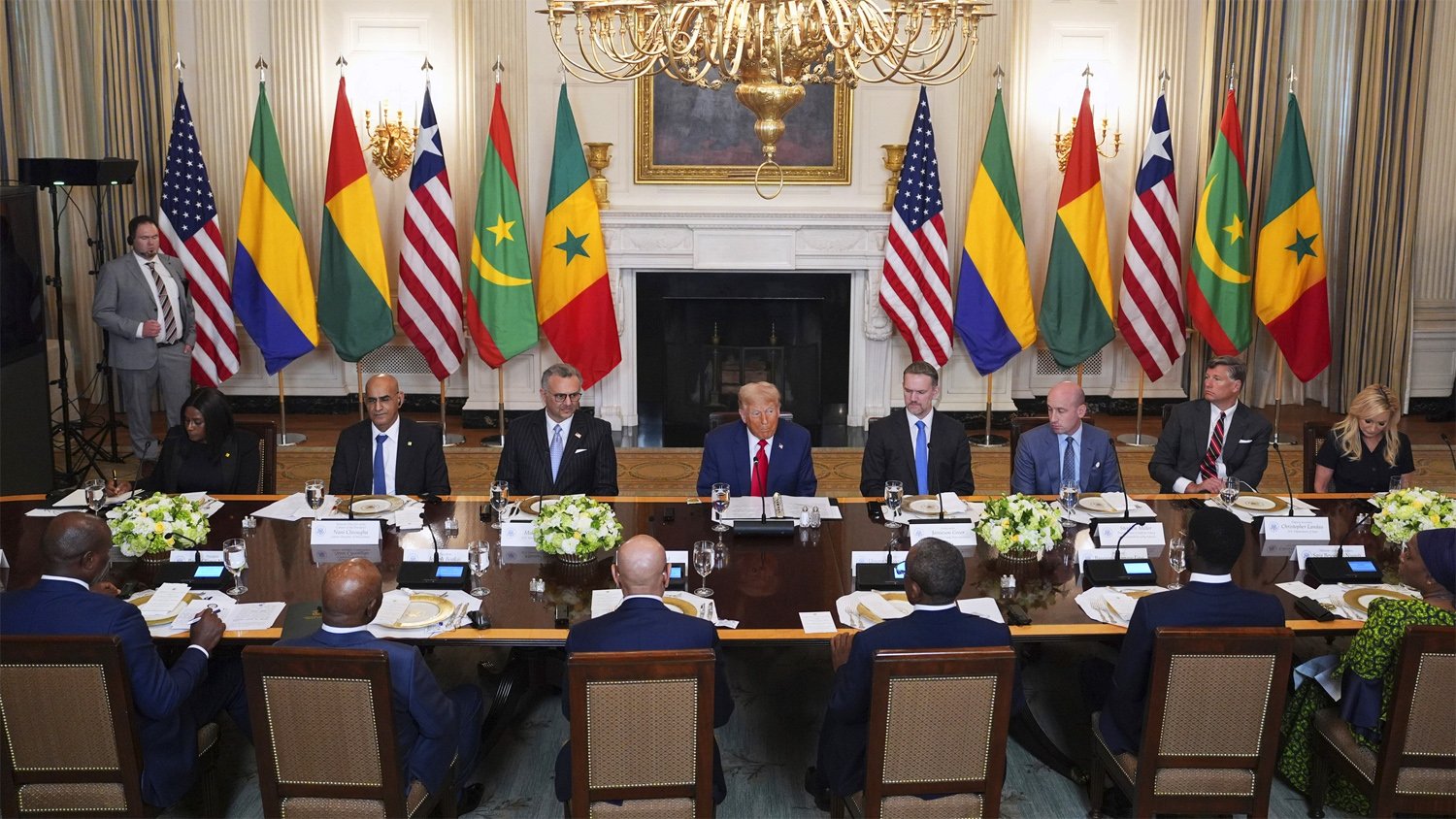
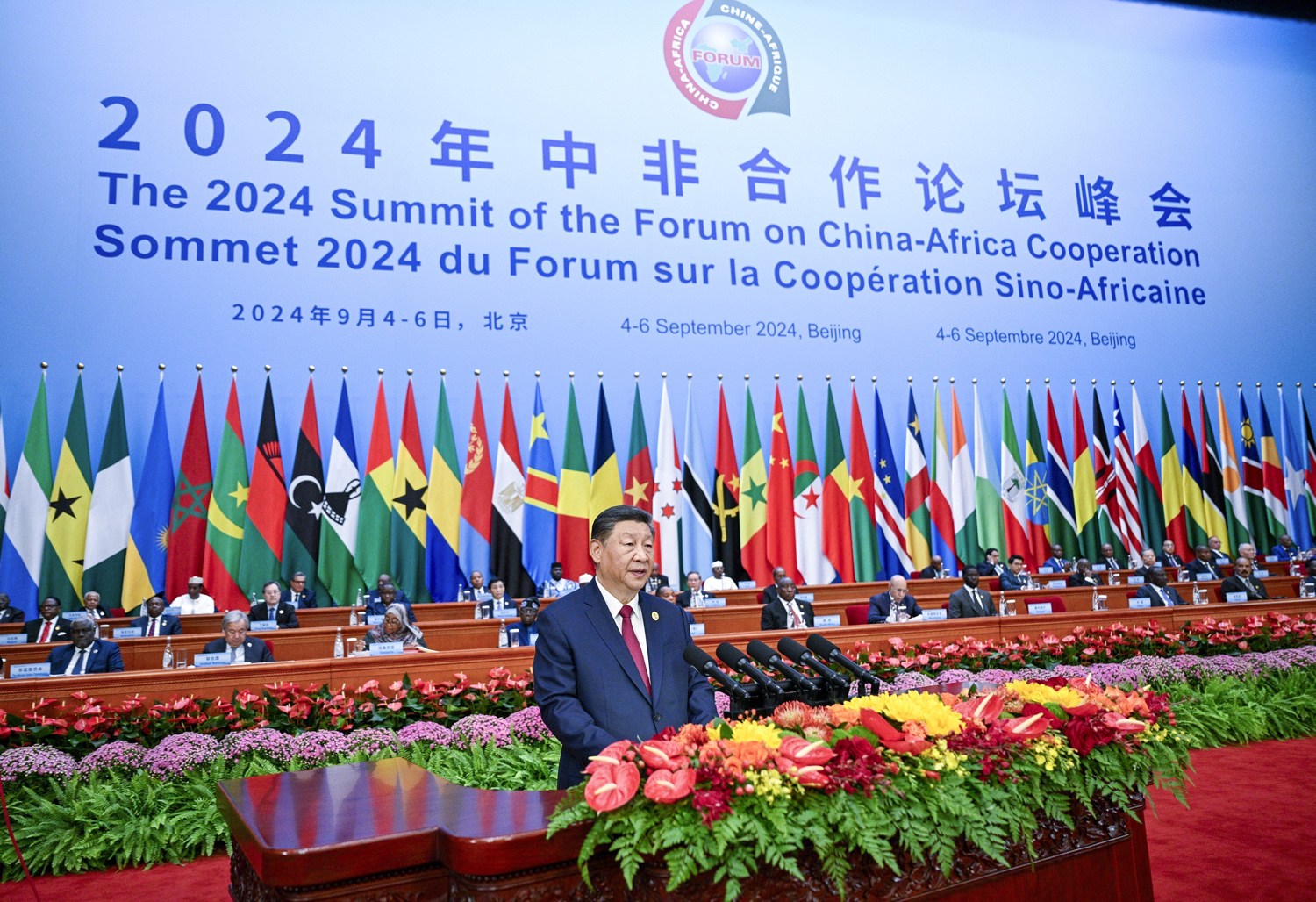
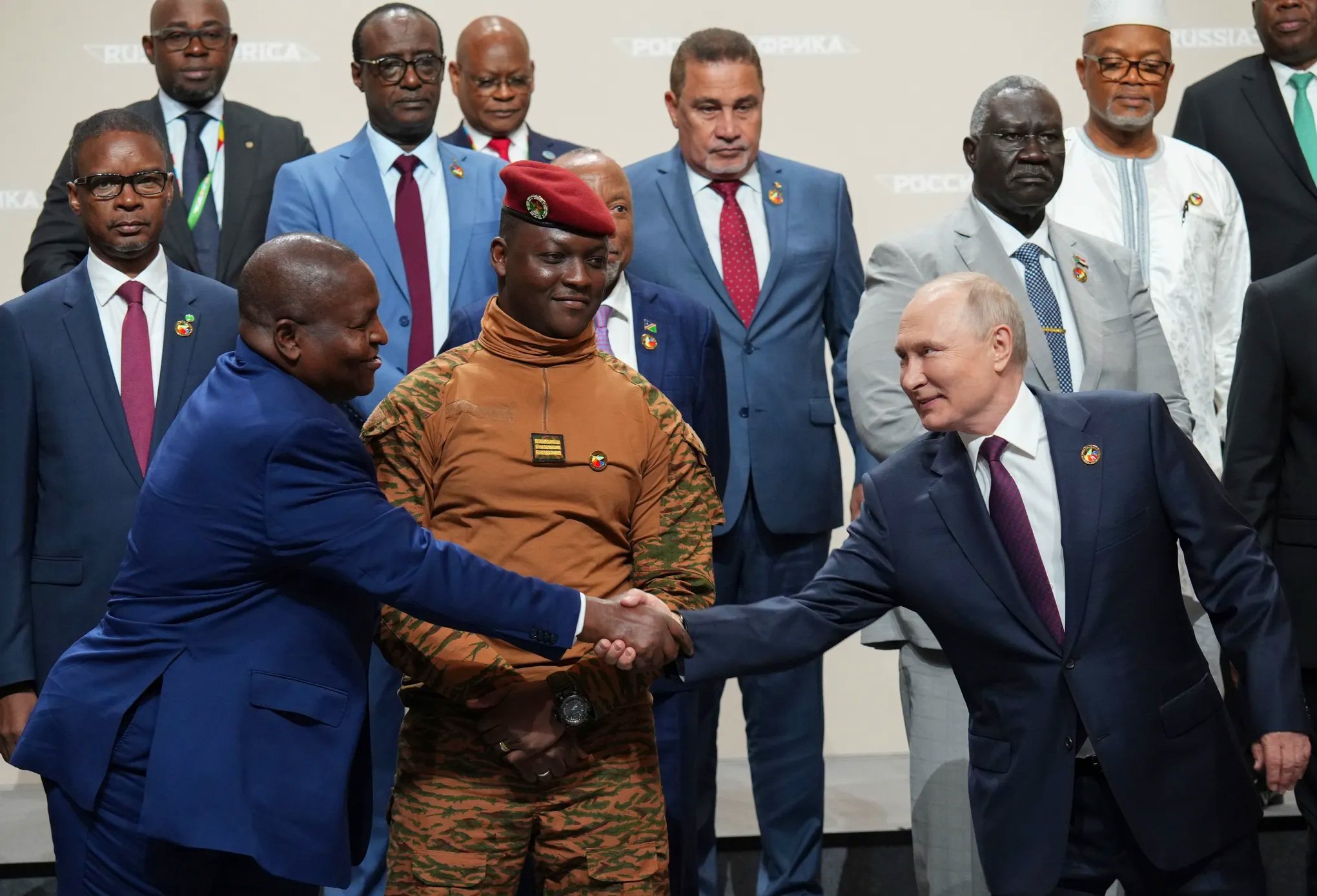




![[Photo] Prime Minister Pham Minh Chinh receives President of Cuba's Latin American News Agency](/_next/image?url=https%3A%2F%2Fvphoto.vietnam.vn%2Fthumb%2F1200x675%2Fvietnam%2Fresource%2FIMAGE%2F2025%2F12%2F01%2F1764569497815_dsc-2890-jpg.webp&w=3840&q=75)
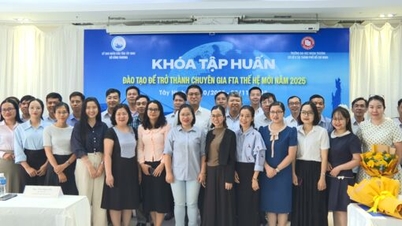

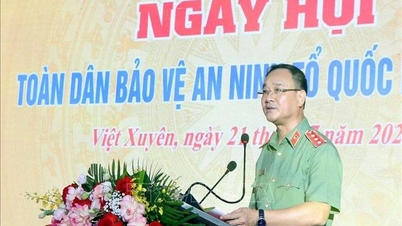

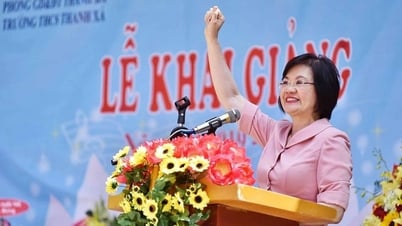

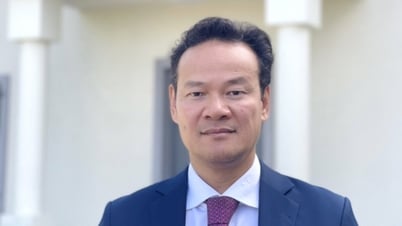
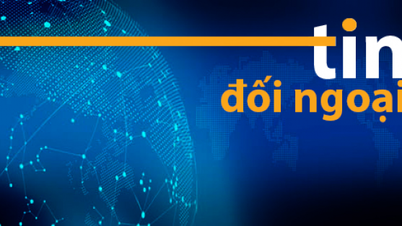

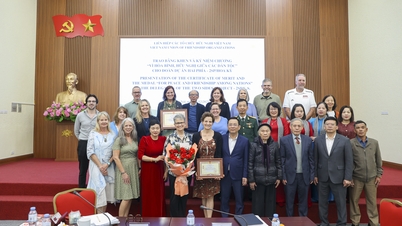

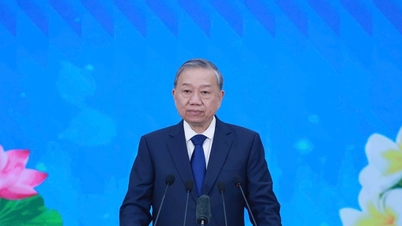

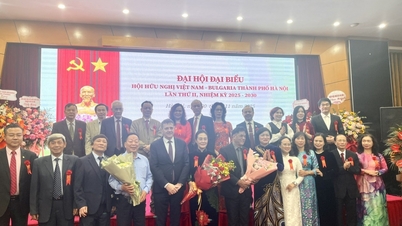
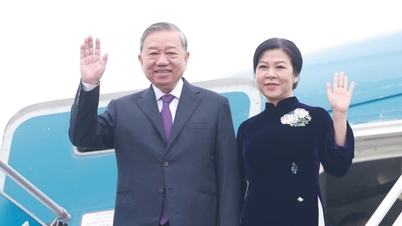
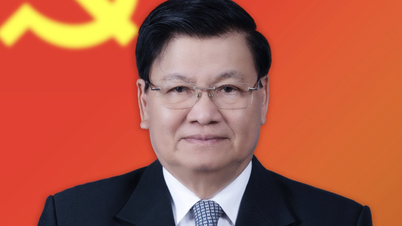
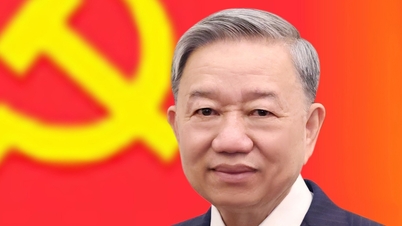





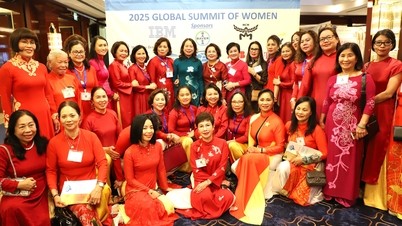
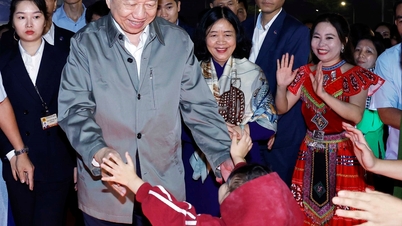

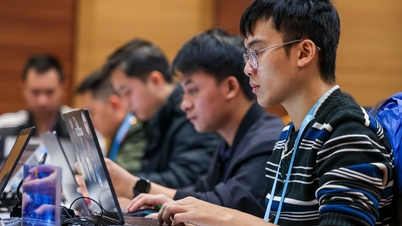



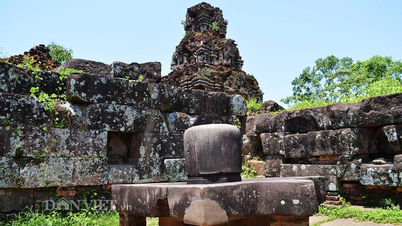

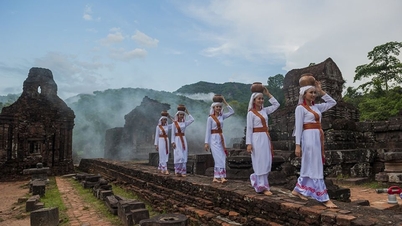


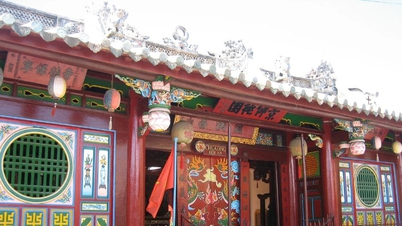


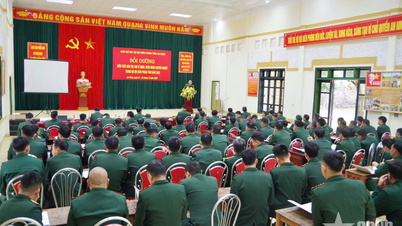

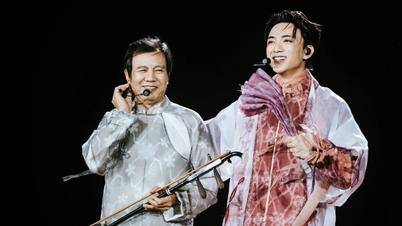

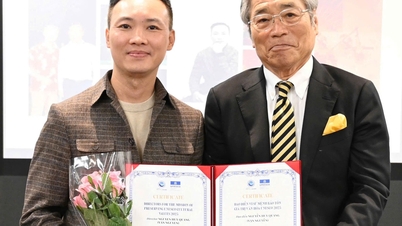
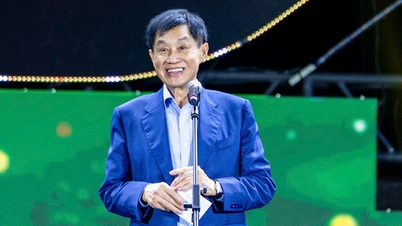



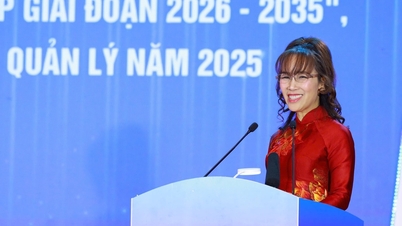
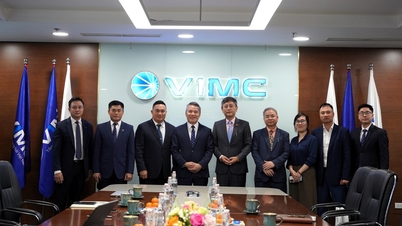


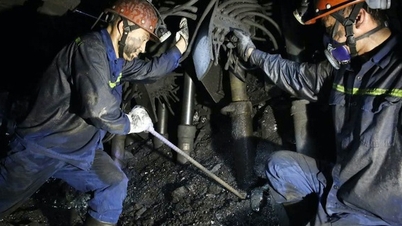


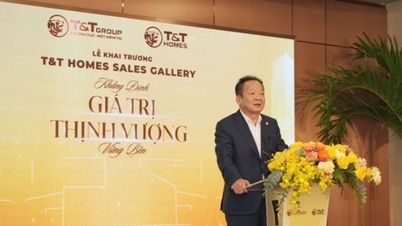














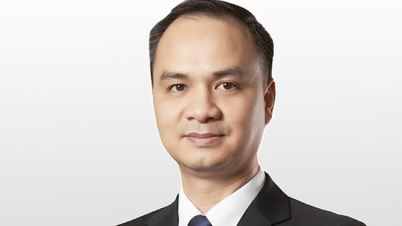

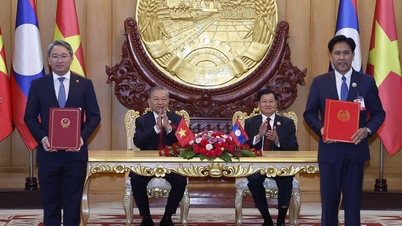
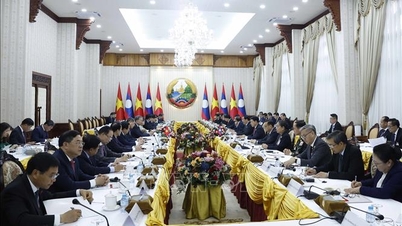



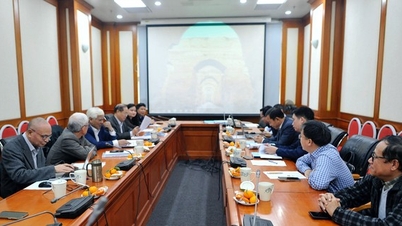
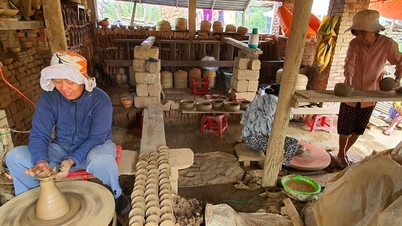

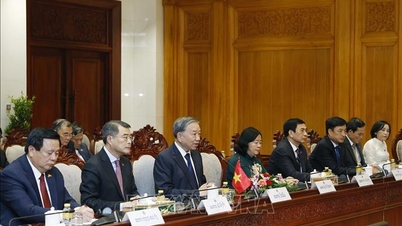
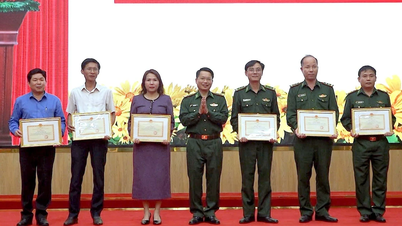

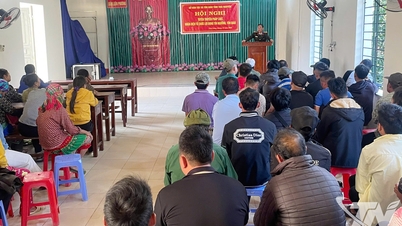

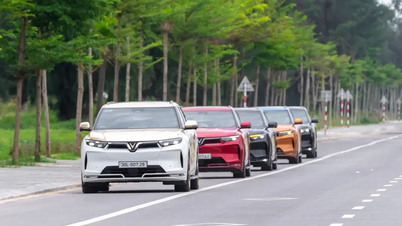

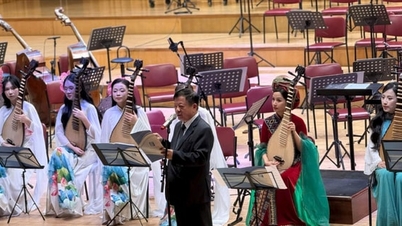



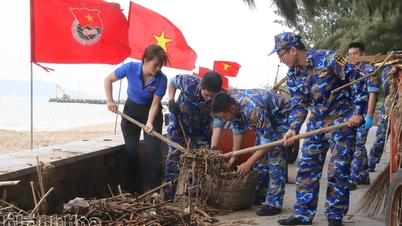













Comment (0)